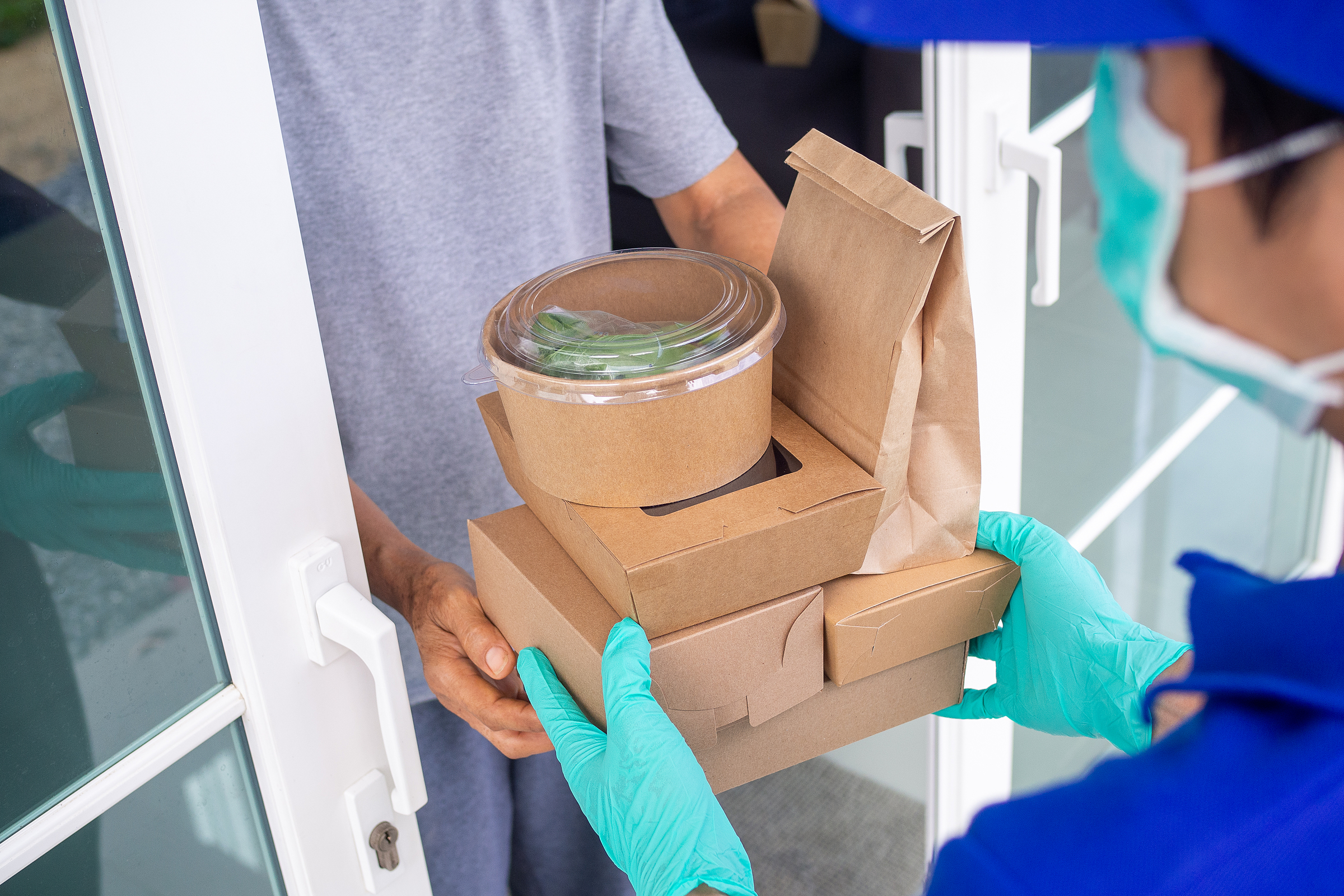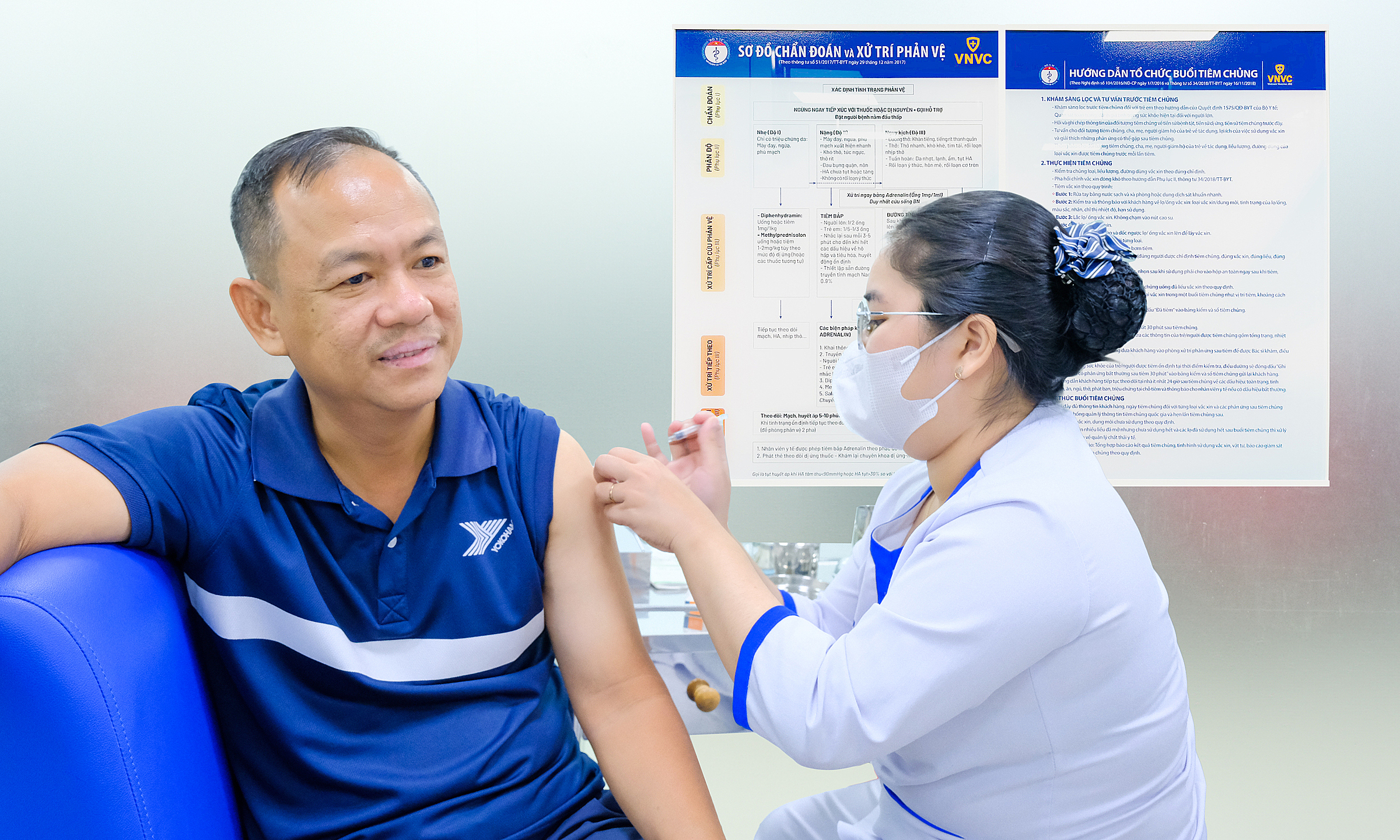Delivery drivers need to proactively protect their health, according to Dr. Ngo Thi Kim Phuong, Medical Manager at VNVC Vaccination System. Their work exposes them to harsh weather conditions, such as extreme heat and rain, and potentially polluted areas, increasing their risk of infectious diseases, especially the following:
 |
Delivery drivers, constantly on the move and interacting with the public, are vulnerable to infectious diseases. Illustration: Vecteezy |
Respiratory illnesses
Delivery drivers interact with dozens of people daily, increasing their risk of contracting airborne illnesses like the flu, pneumococcal disease, measles, diphtheria, whooping cough, chickenpox, and meningococcal disease. These can lead to serious complications such as pneumonia, meningitis, and sepsis.
Furthermore, fluctuating weather patterns in southern Vietnam, coupled with heat, rain, and flooding in the north and central regions, can weaken the immune systems of drivers who work outdoors, making them more vulnerable to illness, especially with irregular meals and dehydration.
Vaccines are available for these diseases, and some can be combined to save time. The flu vaccine requires an annual dose, while the meningococcal vaccine covers five serogroups (A, B, C, Y, W-135). Diphtheria and whooping cough vaccines require boosters every 10 years, and the chickenpox vaccine has a two-dose schedule, one month apart, for adults.
Mosquito-borne diseases
Spending significant time outdoors, especially resting in shaded areas during mornings and evenings, exposes drivers to mosquito bites. Mosquitoes transmit diseases like dengue fever and Japanese encephalitis.
Untreated dengue fever can cause internal bleeding, shock, liver failure, and kidney failure. Japanese encephalitis has a 30% mortality rate, with 30-50% of survivors experiencing lasting effects like mental disorders, paralysis, speech impairments, seizures, epilepsy, and paralysis. Vietnam has recorded over 32,000 dengue cases and at least 10 deaths this year.
The dengue fever vaccine is recommended for children 4 years and older and adults. It involves two doses, three months apart, reducing the risk of infection by over 80% and hospitalization by over 90%.
Three Japanese encephalitis vaccines are available: Jevax (Vietnam), Jeev (India), and Imojev (Thailand). Doctors can recommend the appropriate vaccine and schedule based on individual vaccination history. Adults typically require a single dose of Imojev.
 |
People receiving flu shots at VNVC Vaccination Center. Photo: Hoang Duong |
Tetanus
Delivery drivers are prone to scrapes and falls due to long hours on the road. Tetanus bacteria, present in soil, dust, and road debris, can enter the body through open wounds. Vietnam has recorded tetanus infections from seemingly minor injuries, such as scratches from motorcycle kickstands, falls, or stepping on thorns.
As essential workers, delivery drivers should prioritize tetanus prevention. Vietnam offers three tetanus vaccines for adults: a single dose, a 3-in-1 diphtheria, pertussis, and tetanus vaccine, and a 2-in-1 diphtheria and tetanus vaccine.
Doctors can recommend the appropriate vaccine and schedule based on age and vaccination history. After the initial series, a tetanus booster is needed every 10 years, or sooner for injuries. With complete vaccination, only one additional dose is necessary for a wound, regardless of severity, eliminating the need for tetanus antitoxin.
Rabies
Delivery drivers often navigate narrow alleys and may encounter unsecured properties, increasing their risk of dog bites and potential rabies exposure, especially with difficulty tracking the animal. Rabies is almost always fatal once symptoms appear.
Two new-generation rabies vaccines are available: Verorab (France) and Abhayrab (India). Post-exposure prophylaxis involves five doses on days 0, 3, 7, 14, and 28. Pre-exposure vaccination, with three doses on days 0, 7, and 21 or 28, offers proactive protection. In case of a bite, only two additional doses are needed, eliminating the need for rabies immunoglobulin, saving time and cost.
Ngoc Lan












